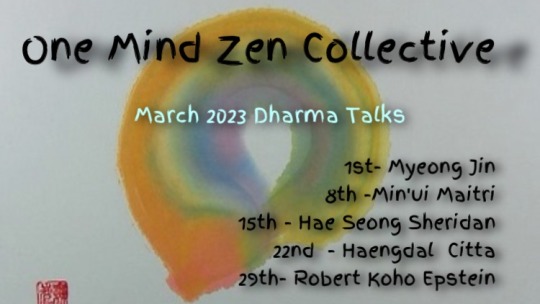#zen meditation
Explore tagged Tumblr posts
Text

#animal#animals#sloth#graphic design#design#relaxation#relax#yogaposes#meditation#funny#pictures#black and white picture#art#animal art#three toed sloth#zen#zen meditation#contemplation#reflection#black and white#photographer#photograph#photography#wildlife#wildlife photography#animal photography#yoga aesthetic#yogainspiration#yoga
66 notes
·
View notes
Text
禅 zen

#japanese language#書道#japanese culture#japan#japanese calligraphy#japanese#japanese art#calligraphy#kanji#japanese langblr#zen#zen meditation#buddhism#buddhist
73 notes
·
View notes
Text
What is this mind?
Who is hearing these sounds?
Do not mistake any state for self-realization, But continue to ask yourself even more intensely, What is it that hears?
Who is hearing?
Your physical being doesn't hear,
Nor does the void, Then what does?
Strive to find out.
Put aside your rational intellect, Give up all techniques,
Just get rid of the notion of self.
-Bassui Tokusho-Rinzai Zen Master
1327-1387
#spirituality#consciousness#non duality#nonduality#meditation#bassui tokusho#zen meditation#zen#self realization
6 notes
·
View notes
Text
Lost in Zen: Navigating the Path to Inner Peace
Introduction
In today's fast-paced world, where chaos and distractions seem to be the norm, finding inner peace has become a coveted goal for many. The journey to inner peace often leads individuals to explore various practices and philosophies. One such path is the practice of Zen Buddhism, which offers a unique and profound way to navigate the complexities of life while seeking tranquility. In this blog, we'll delve into the concept of being "Lost in Zen" and how it can guide us towards a more peaceful existence.
Understanding Zen
Zen is a branch of Mahayana Buddhism that originated in China and later spread to Japan, where it became most prominent. At its core, Zen is about direct experience and intuitive understanding rather than relying on conventional knowledge or intellectual concepts. It emphasizes the importance of meditation, mindfulness, and living in the present moment to achieve enlightenment or "Satori."
The Paradox of Being Lost in Zen
Being "Lost in Zen" might initially sound counterintuitive. After all, we often associate being lost with confusion and disorientation. However, in the context of Zen, it means letting go of the mental clutter and distractions that keep us disconnected from our true selves and the present moment. Zen encourages us to lose ourselves in the moment, shedding the ego, and experiencing reality as it is, unfiltered.
Key Principles of Zen
Mindfulness: Zen teaches us to cultivate mindfulness, the practice of paying full attention to the present moment without judgment. By doing so, we can break free from the constant mental chatter and worries that often plague our minds.
Meditation: Meditation is a cornerstone of Zen practice. Through meditation, we learn to quiet our minds and observe our thoughts and emotions without attachment. This leads to greater self-awareness and a deeper connection with our inner selves.
Simplicity: Zen advocates for a minimalist and simple lifestyle. By decluttering our physical space and simplifying our lives, we create a conducive environment for inner peace to flourish.
Non-attachment: Zen teaches us to let go of attachments to material possessions, desires, and even our own self-concept. By relinquishing our clinging nature, we free ourselves from suffering and experience greater equanimity.
Practical Steps to Get "Lost in Zen"
Start with meditation: Begin a regular meditation practice to quiet your mind and connect with your inner self. Even a few minutes each day can make a significant difference.
Embrace mindfulness: Practice mindfulness in your daily activities. Pay attention to your breath, the sensations in your body, and the sights and sounds around you as you go about your day.
Simplify your life: Declutter your living space and let go of unnecessary possessions. Simplifying your life can lead to greater mental clarity and a sense of liberation.
Let go of attachments: Reflect on your attachments and desires. Are there things or ideas you're clinging to that cause suffering? Practice letting go and accepting things as they are.
Seek guidance: Consider joining a Zen meditation group or seeking guidance from a Zen teacher. Learning from experienced practitioners can deepen your understanding and practice.
Conclusion
Being "Lost in Zen" isn't about losing your way in life; it's about losing the distractions and attachments that keep you from experiencing true peace and clarity. By embracing the principles of Zen—mindfulness, meditation, simplicity, and non-attachment—you can embark on a transformative journey toward inner peace. Remember, the path to Zen is a lifelong journey, and each step brings you closer to a more meaningful and tranquil existence in our hectic world.
#Zen Buddhism#Inner Peace#Meditation#Mindfulness#Zen Philosophy#Simplify Your Life#Non-Attachment#Finding Tranquility#Zen Meditation#Letting Go#Self-Awareness#Present Moment#Zen Practices#Minimalism#Zen Lifestyle#Zen Teacher#Mindful Living#Enlightenment#Satori#Zen Wisdom#today on tumblr
12 notes
·
View notes
Video
youtube
This simple shift in perspective could change your life: Here is how consciously moving through your suffering leads to an empty mind of infinite peace.
It's a beautiful meditation that transmits the silence aspect of enlightenment. May it bring you the bliss! <3
4 notes
·
View notes
Text

Let the sky take it
Let the water carry it
Let the earth hold it
Because you don’t have to anymore
Let it go
3 notes
·
View notes
Text

Wednesdays 7:00 PM EST on Zoom & YouTube
3 notes
·
View notes
Text
How Do Ancient Healing Sounds Compare to Modern Meditation Trends?
When you think about meditation therapy, music therapy, and stress relief, the use of sound for healing may not be a new concept to you. Ancient civilizations have long harnessed the power of healing sounds, such as Tibetan singing bowls, to promote mental well-being and reduce stress. Fast forward to the modern era, and you find meditation music trends incorporating advanced sound technology,…
#meditation#meditation music#mental-health#mindfulness#positive vibration#yoga#zen#zen buddhism#Zen meditation#zen meditation for beginners#zen music
0 notes
Text
Mocha Zen Energy Neutral Art
A positive energy yin and yang symbol design by artist Sharon Cummings in rich earth tones. Add some peace to any home or office space. Perfect for a yoga studio, meditation space or your own personal retreat. A healing energy in soft gray, tan, taupe, mocha, chocolate mousse and golden tones. GET IT HERE!

View On WordPress
#art#focused meditation#healing art#martial art#martial arts#meditate#meditation#meditation art#meditation room#meditation room decor#modern art#sharon cummings#sharon cummings art#yin & yang#yin and yang#yin and yang symbol#ying and yang#yoga#yoga art#yoga center#yoga decor#zen#zen art#zen meditation
0 notes
Text










#hilltop insane clinic#art#goth#witch#thai hot#cats of tumblr#cottagecore#ohayo prayers#black cat#tom and ladies#flowers#meditation#sosial media#zen meditation#christian meditation#christian motivation#christian broadcasting network#original character#mental health support#psychology#astrology#masquerade mask
1 note
·
View note
Text

瞑想感覚 (Meditative Feeling) 三村寛子
意識の第二段階、このレヴェルでは、沈黙することによって内部からくる重要な事実を観じることができる。もちろん明日への不安はない。何か事が生じても、常に自分の原型を見つめることができ、今、何をすることがベストなのかを知っている。普遍の空間と、今ある物質社会の空間が、どんなに密接な関係を持っているのか、体験として認識している。また、このレヴェルに意識がある人は、創造のプロセスを心得ている。したがって、時間の影響も受けにくくなっているが、時間を超越する体験までは、もう少し瞑想を必要とする。だが、社会生活上起きるさまざまな問題や仕事での発展などは、自分の意志で自由に選択できる。また、意識の作用でいちおう物質的な繁栄が満足できるようになり、精神的な深まりを求めるようになるのもこのころである。


第三段階では、意識は著しい目覚めをすでに経過している。時間の壁や、空間の原理を悟り、創造することも破壊することもできる。だが、個人的な欲望や社会的野望でそれらの行為を行なうことはない。なぜなら、この意識に到達した人は、自分の生まれてきた理由、つまり存在理由を知っている。したがって自分の成すべき目的を自覚し、それを表現しようとするとき、一切の障害はない。ただあるがままに生き、なすがままに行動する。その繰り返しなのだが一歩一歩目的に向かって進んでいる。このレヴェルの人には、大きな目的が与えられるが、それを認識するのが意識である。しかも、その与えられた目的とその人個人の目的とはみごとに一致している。



本来、目的とはこのように進歩しながら、周囲にあるすべてのものを一つの方向に促すものだ。一つの目的によって、ほかの一つが破れるなどということはありえない。もしあるとしたら、それは目的ではなく欲望である



#meditation#christian meditation#zen meditation#ohayo prayers#bookblr#bobowhips#consciousness#mental health#mental health support#astrology#mythology#art#religious#inspiration#cottagecore#cats of tumblr#hilltop insane clinic#spiritual awakening#books#life#hot teacher
0 notes
Text
"Zen Zone: 1 Hour of Relaxing Meditation Music"
youtube
#zenzone#1 hour meditation music#zen music#zen meditation#mentalhealth#healing#meditation#dereknickerson#spiritual enlightment#enlightened path meditations#Youtube
0 notes
Text
禅 "zen"

The above artwork is available on my Etsy shop here.
Tumblr users get 15% off (all my stuff!) with this discount code: TUMBLRCODE15 Just enter it when you checkout.
#japanese language#書道#japanese culture#japan#japanese calligraphy#japanese#japanese art#calligraphy#kanji#japanese langblr#zen#zen meditation#buddhism#buddhist
12 notes
·
View notes
Text
“When he sat, his stillness made his body resemble a block of dry wood. Hung Chih, calling his method “Silent Illumination,” describes it as follows: “Your body sits silently; your mind, quiescent, unmoving. Your mouth is so still that moss grows around it. Grass sprouts from your tongue. Do this without cease, cleansing the mind until it gains the clarity of an autumn pool, bright as the moon illuminating the evening sky.”
The Poetry of Enlightenment: Poems by Ancient Chan Masters
Chan Master Sheng Yen
3 notes
·
View notes
Text
“The Zen way of calligraphy is to write in the most straightforward, simple way as if you were a beginner, not trying to make something skilful or beautiful, but simply writing with full attention as if you were discovering what you were writing for the first time; then your full nature will be in your writing.”
Shunryu Suzuki was an Sōtō Zen monk and teacher who helped popularize Zen Buddhism in the United States and is renowned for founding the first Zen Buddhist monastery outside Asia.
Born: 18 May 1904, Kanagawa Prefecture Died: 4 December 1971, San Francisco, California, United States

#zen buddhism#buddhism#mindfulness#buddhist#dharma#spiritual#buddha#way of zen#Kōbun Otogawa#zen proverb#zen priest#japan#limitation#air#breathe in#zen meditation#alone time#alone#thoughs#calligraphy#Shunryu Suzuki
2 notes
·
View notes
Video
youtube
Start with Self-Honesty in Meditation. then Find Your Essence
#youtube#meditation#nonduality#self realization#spiritual enlightenment#zen meditation#awareness#consciousness
0 notes